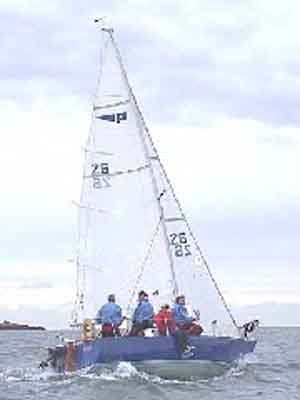Displaying items by tag: Puppeteer Class Association
Puppeteer Class Association
 In Afloat's March 2009 issue, Graham Smith wrote the following: "Essentially an indigenous racer, the Puppeteer has records of 53 boats being built over the years, with 31 of them based in Howth where they regularly get 20 out for club races. It has tried in recent years to make it a strict one-design, but with northern boats racing under IRC, there are considerable differences between the boats so travelling north isn’t worth it! Click here for all the latest Puppeteer news and updates.
In Afloat's March 2009 issue, Graham Smith wrote the following: "Essentially an indigenous racer, the Puppeteer has records of 53 boats being built over the years, with 31 of them based in Howth where they regularly get 20 out for club races. It has tried in recent years to make it a strict one-design, but with northern boats racing under IRC, there are considerable differences between the boats so travelling north isn’t worth it! Click here for all the latest Puppeteer news and updates.
The Nationals, therefore, are held in Howth and 2008 saw 19 boats contest the event. The names usually found at the head of the fleet – Clarke, Stanley, May – were the pre-race favourites as usual and it was Garrett May and his crew who made the most of the circumstances to emerge as overall winners. National Champion 2009: Garrett May, Howth YC."
Puppeteer Class Association, c/o Noel Davidson, President, 'Haven', 59 St. Peter's Terrace, Howth, Co Dublin. Tel: 086 25 99 531, email: [email protected]
There is a space for Irish boating clubs and racing classes to use as their own bulletin board and forum for announcements and discussion. If you want to see a dedicated forum slot for your club or class, click here























































